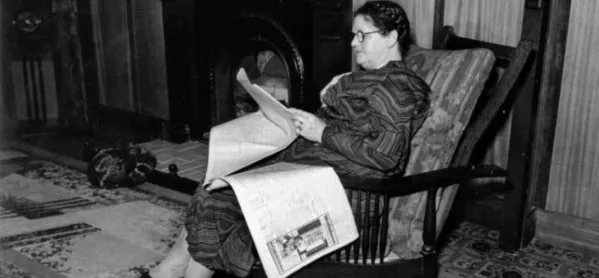For many years school leaders and teachers have complained about the pressures and problems caused by an accountability system of Ofsted inspections, league tables and targets.
But did this week mark the moment where the profession started to push back?
The findings of a heavyweight Accountability Commission - led by the National Association of Head Teachers - has been published, with the damning verdict that the current system is doing more harm than good.
For Ofsted this meant the week started as the previous one had finished with criticisms and questions about the reliability of its inspections and its future role - culminating in the NAHT calling for the inspectorate to put its plans for a new inspection framework on hold.
Tes’s special More Harm than Good report set out the commission’s findings in detail.
It warned that the current system was driving teachers out of the profession, discouraging them from working where they are most needed and encouraging school leaders to make selfish and defensive decisions in order to boost their results.
But the report was not all doom and gloom. It also made a series of recommendations to make school accountability a force for good, including creating a new way of identifying and sharing excellence in the system to replace the Ofsted outstanding grade.
This was also the week where some teachers, leaders and campaigners pushed back on another issue - exclusions.
There have been mounting concerns about the way in which schools are removing pupils from schools - and the suggestion that schools are “off-rolling” students in order to boost their exam results.
However an open letter from backers of the Parents and Teachers for Excellence (PTE) campaign group gave its support in the “strongest possible terms” for heads to exclude pupils within the law when they deem it necessary.
And perhaps as important, the letter said it was essential not to conflate fixed-term exclusions with permanent ones, or legal exclusions with illegal practices, such as schools off-rolling pupils to boost their league table positions.
Teacher pay was also back on the agenda, if it had ever been away, with the revelation that teachers in England have taken the second biggest pay cut in the developed world.
The new figures from the Organisation for Economic Co-operation and Development (OECD) cover 2005-17 for teachers with 15 years experience and typical qualifications.
They revealed that teachers in England have been a hit by a 10 per cent pay cut, with only those in crisis-hit Greece having to endure a bigger loss.
But in a busy week of education news there has been one story which stood out.
Two mothers whose daughters were raped - one when she was just six years old - told Tes that there is an epidemic of sexual abuse taking place in schools, carried out by other children.
They warned that despite police figures showing three sexual assaults in primary school are reported every day, the DfE is failing to make tackling sexual violence in school a priority.
“They clearly don’t understand the devastating impact of rape on a child. We do because we live with it,” they said.
The parents have spoken publicly in the attempt to ensure more is done to protect pupils and support victims.
It is difficult to read and perhaps even more difficult to comprehend. But nobody should turn away from this shocking story. It is too important.




